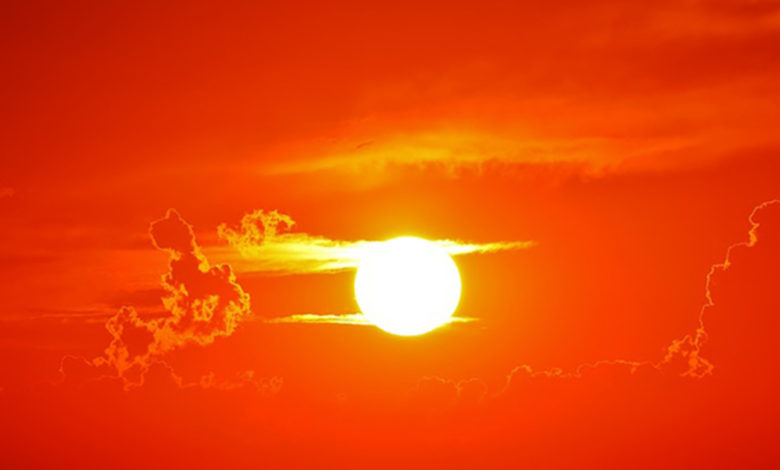
From droughts to heat waves to severe rainfall and flooding, this summer saw extreme weather events across the globe induced by the ever-worsening climate crisis. These five events reveal the stark inequality of climate change: it is a crisis created by the capitalist class in the wealthy countries, but it is poor and working people throughout the world who will suffer its fallouts.
Flooding in Pakistan
Beginning in mid-June, torrential monsoon storms hit Pakistan over the course of several weeks, resulting in the deadliest floods seen in South Asia in decades. Currently, a third of the country is submerged underwater, with 33 million displaced and over 1,000 killed.
According to researchers, the floods were made up to 50% worse by climate change and global heating. Pakistan is prime example of how capitalist countries create climate change, and leave underdeveloped countries to shoulder its disastrous consequences: while Pakistan is responsible for less than one percent of global carbon emissions — the Global North, meanwhile, is responsible for 92% — it is ranked as the eighth country most vulnerable to climate crisis.
Extreme drought in Mexico
In July, Mexico declared a state of emergency over its worst water crisis in 30 years. By that time, “eight of Mexico’s 32 states were experiencing extreme to moderate drought, resulting in 1,546 of the country’s 2,463 municipalities confronting water shortages, according to the National Water Commission.”
The city of Monterrey has seen the most severe shortages: drought had dried up the reservoirs that provided 60% of the water to its 5 million residents, and it’s the poor who suffer the most. Some residents went as long as six weeks without running water at home. While the poor were forced to ration or wait in long lines for water, wealthier neighborhoods saw few water cuts.
Meanwhile the water crisis is made worse by multinational corporations like Coca Cola and Heineken, who are extracting billions of liters of water from Mexico’s public reservoirs to continue production.
Flooding in Eastern Kentucky
In late July, heavy downpour and torrential flooding hit Eastern Kentucky, one of the poorest regions in the United States. After several weeks of searching for those missing, 40 people were ultimately confirmed dead. Hundreds of people were displaced by the flooding due to their homes being destroyed, and for the thousands who lost power and electricity, the crisis was made even worse by a sweltering heat wave.
In the aftermath of this tragedy, many in the media lamented this “natural disaster,” but make no mistake, this is a crisis of capitalism. In Appalachia, decades of extractive coal mining by capitalist coal companies stripped topsoil off the mountains, leaving nowhere for the rainfall and storm runoff to drain and causing it to run down into the floodplains below. This bottomland is where the majority of residents live, because corporate landowners and mining companies over the past 120 years bought all the “high ground” land on the mountainsides, protecting them from these types of disasters while leaving working people vulnerable. Lack of investment in Eastern Kentucky’s aging infrastructure also compounded the crisis.
Heat wave in California
In early September, temperatures in Sacramento soared to 116 degrees, the highest recorded in a hundred years. In Los Angeles, temperatures rose to over 100 degrees and San Diego issued an excessive heat warning with temperatures climbing into the upper 90s.
This heat wave may have been the worst in California’s history, but as researchers have noted, the effects of extreme weather events are not evenly distributed: poorer, often Black and Latino neighborhoods often suffer from neglect by city officials and lack the infrastructure and green spaces to effectively cool the areas and provide shade. In cities such as Los Angeles San Diego, and San Jose, neighborhoods with large Latino communities recorded temperatures four or five degrees higher than the metro average.
Hurricane Fiona in Puerto Rico
Last Monday, Hurricane Fiona hit Puerto Rico, leaving most on the island without electricity. The power outages present dangerous challenges to the island’s health care sector, which use freezers and refrigerators to store medications and are now forced to rely on generators. Running water services have also been disrupted due to lack of electricity.
While Hurricane Fiona was a natural disaster brought by climate change, the severity of the blackout was a direct result of colonial imposition and capitalist greed. In 2016, Congress established a Fiscal Control Board to oversee Puerto Rico’s debt restructuring through the Puerto Rico Oversight, Management, and Economic Stability Act. However, “in exchange for debt restructuring, Puerto Rico had to accept the terms imposed by this unelected group of figures in the pocket of Corporate America.”
After Hurricane Maria destroyed most of Puerto Rico’s power grid in 2017, this Fiscal Control Board forced the island to turn over its power utility services to LUMA, a private Canadian-American energy company, against the wishes of those on the island.
The energy services provided by LUMA have been largely unreliable with outages more frequent since its takeover of Puerto Rico’s power grid last year.
Climate crisis is here
These extreme weather disasters serve as a reminder: climate crisis is here. Capitalism has wreaked havoc on the globe in its drive for endless growth. We need a new, socialist system that prioritizes the needs of the people over profit-seeking.





